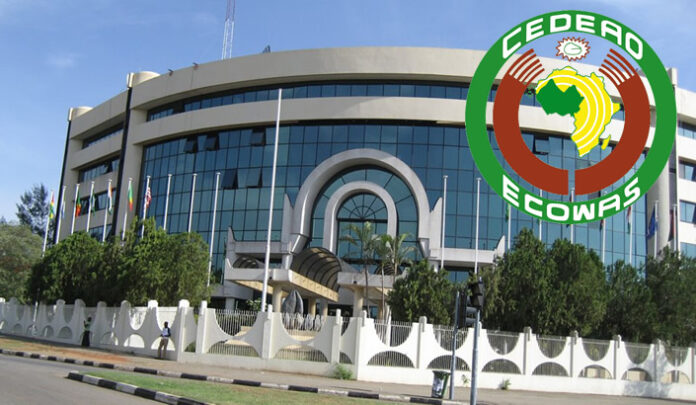Economic Community of West African States, ECOWAS, stood for 50 years as a model of peace, security, and integration, the Director-General of the Nigerian Institute of International Affairs NIIA, Professor Eghosa Osaghae, has said.
Osaghae made the remark in Lagos, yesterday during an international conference marking the 50th anniversary of the ECOWAS.
The event, jointly hosted by the NIIA and Konrad-Adenauer-Stiftung, KAS, offered space to reflect on ECOWAS’ milestones and its ongoing regional challenges.
In his address, Osaghae stressed the event’s symbolism, marking the historic signing of the ECOWAS Treaty on May 28, 1975, in Lagos.
He noted the NIIA’s crucial role in shaping the treaty, helping create one of the Global South’s most effective models of regional cooperation.
“This celebration shows ECOWAS’ resilience. Looking ahead, we are hopeful the next 50 years will bring even greater unity and prosperity to West Africa,” Osaghae stated.
He praised ECOWAS’ early peacekeeping efforts, including its mission in Liberia in the late 1980s — the first African-led peace operation.
Osaghae also acknowledged ECOWAS’ role in promoting governance and regional mobility, which are key components of the African Continental Free Trade Area.
“ECOWAS is more than an economic bloc — it has become a guardian of democracy and political stability,” he said.
Gen. Yakubu Gowon (Rtd), former Nigerian Head of State and ECOWAS founding figure, reflected on the bloc’s formation and enduring importance to West Africa.
“In recent years, ECOWAS has faced difficulties, especially with the withdrawal of some member states,” Gowon said.
He noted that in spite of losing three of its 15 members, ECOWAS remains the most successful regional body on the continent.
Marija Peran, Resident Representative of KAS in Nigeria, praised ECOWAS’ progress over the past 50 years.
She said the conference provided a moment to honour achievements and confront existing regional difficulties.
“ECOWAS was founded to unite the region, much like the European Union, and has contributed to stability and peace,” Peran observed.
She acknowledged persistent challenges including economic disparity, insecurity, and political instability across the region.
Peran reaffirmed Germany’s commitment to supporting ECOWAS through continued technical and financial partnerships.
She said Germany has helped strengthen ECOWAS through infrastructure development, trade support, and renewable energy initiatives.
According to Peran, the next five decades must deepen economic integration, political unity, and regional security for all West Africans.
Both Osaghae and Peran agreed that ECOWAS must address today’s pressing issues while preserving its legacy of peace and cooperation.
German Consul General, Mr Weert Börner, assured that Germany and the EU would remain supportive of ECOWAS during difficult periods.
Europe, he said, understands the strain when a regional peace project is tested from both within and outside.
He emphasised ECOWAS’ vital role in defending democracy and managing political transitions despite recent exits by Burkina Faso, Mali, and Niger.
Börner highlighted Germany’s ongoing partnership with ECOWAS, currently funded at 500 million euros.
The projects focus on peace, stability, governance, economic development, energy, and public health across West Africa.
He added that efforts include boosting agricultural trade and supporting AfCFTA implementation structures.
“We assist ECOWAS with mediation, crisis prevention, and training for peacekeeping — military, police, and civil,” he said.
He added Germany remains committed to tackling the root causes of terrorism and insecurity in the Sahel and coastal West Africa.
The News Agency of Nigeria reports that the conference attracted diplomats, government officials, academics, and representatives from international organisations. NAN





